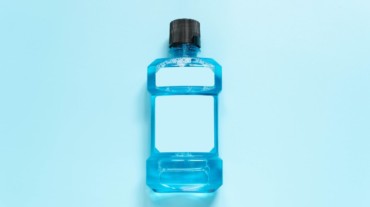
Mouthwash is important when it comes to oral health. You cannot skip brushing your teeth or flossing, or using mouthwash for oral hygiene. But it is an effective way to fight bad breath or to kill harmful bacteria that may be hiding in your mouth. It will only work if you know how to use it in the right way. Let us tell you the right way to use mouthwash.
Mouthwash, which comes in colours such as blue, green, and pink, is a liquid oral hygiene product. It is meant to be swished or gargled in the mouth for oral hygiene. It typically contains antiseptic or antibacterial agents to help kill bacteria, reduce plaque, and freshen your breath.

It aids in maintaining oral hygiene by reducing bacteria in the mouth. It can reach areas that toothbrush might miss, helping to control plaque and prevent gum disease, says dental surgeon and prosthodontist Dr Sacheev Nanda. Also, mouthwash with fluoride can strengthen enamel and prevent cavities.
Generally, a dose of about 20 ml is recommended to clean your mouth. Mouthwash comes with a cap or a small cup that you can use.
Also Read: Use the best mouthwash for healthy teeth and gums
Swish for the specified duration, which is usually 30 seconds to one minute, says the expert. It should reach the front and back of your teeth, your tongue, and the roof of your mouth.
After swishing, spit it out. Don’t immediately eat or drink anything after using mouthwash. Wait for at least half an hour to increase its effectiveness. The duration might be mentioned on the bottle. It’s essential to read and adhere to the product’s instructions.
Swallowing mouthwash, especially those containing alcohol, can lead to nausea, vomiting, and intoxication, says Dr Nanda. In severe cases, it can cause dizziness or even respiratory depression (breathing too slowly or shallowly, which leads to the build up of carbon dioxide in your blood). Parents should keep children under the age of 6 away from mouthwash, but even adults should not swallow it.
The effectiveness of a mouthwash depends on the oral health of an individual:
Also Read: Benefits of lemon juice: The natural mouthwash to get rid of bad breath
Select Topics of your interest and let us customize your feed.
PERSONALISE NOW
The choice of the most effective mouthwash should be made in consultation with a dentist, considering individual needs and preferences for a well-rounded oral care routine.
While the recommended usage of mouthwash can vary, a general guideline is to use it once or twice daily after brushing. The specific frequency and amount may be specified on the product label, and it’s crucial to adhere to these instructions for optimal results. Consulting with a dentist can also help to determine an appropriate oral health routine based on individual oral health needs.
If you suspect that your bad breath has nothing to do with the foods you ate or poor oral hygiene, don’t expect mouthwash to help you get rid of the problem. A dentist can help to figure out if you have any oral health problems.
Get Latest Updates on How To